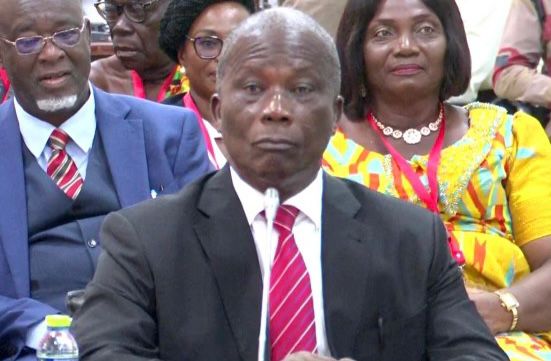Justice Philip Bright Mensah, a nominee for the Supreme Court of Ghana, advocated for bolstering the Court of Appeal to alleviate the substantial caseload burdening the Supreme Court. During his appearance before Parliament’s Appointments Committee, Justice Mensah argued that empowering the Court of Appeal to conclusively handle a greater volume of cases would effectively reduce the number of appeals reaching the Supreme Court, thus streamlining the justice delivery process. He emphasized the necessity of a concerted and strategic approach to achieve this goal, suggesting an increase in the number of judges at the appellate level as a critical component. He also underscored the importance of legislative action and revisions to the Rules of Court, coupled with a broad national dialogue, to facilitate this restructuring.
Justice Mensah’s proposal revolves around the concept of strengthening the Court of Appeal as a crucial intermediary step in the judicial hierarchy. By enhancing the capacity and authority of the appellate court, fewer cases would necessitate escalation to the Supreme Court. This would allow the highest court to focus on cases of significant constitutional importance, complex legal issues, and those with far-reaching implications for the nation. This strategic strengthening of the Court of Appeal would involve increasing its judicial manpower, potentially through the appointment of additional judges, and refining its procedural rules to ensure greater efficiency and finality in its decisions. The aim is to create a more robust and capable Court of Appeal that can effectively resolve a larger proportion of legal disputes, thereby reducing the pressure on the Supreme Court.
Furthermore, Justice Mensah highlighted the importance of collaboration between the judiciary, legislature, and the Rules of Court Committee to realize this vision. Legislative action might involve amending relevant laws to clarify the jurisdiction and powers of the Court of Appeal, while revisions to the Rules of Court could streamline procedures and enhance efficiency. The emphasis on national dialogue underscores the significance of public engagement and consensus-building in any proposed reforms to the judicial system. This participatory approach would ensure that changes are well-considered, reflect public sentiment, and garner broad support.
Addressing the issue of the Supreme Court’s size, Justice Mensah cautioned against arbitrarily capping or expanding the number of justices without considering the court’s jurisdiction and existing caseload. He cited the Judicial Service’s annual report, revealing a backlog of 595 pending cases as of June 2023. This significant backlog, he argued, underscores the need for a nuanced approach to determining the optimal size of the Supreme Court. Simply limiting the number of justices without addressing the underlying issue of caseload could further exacerbate delays and hinder access to justice.
In essence, Justice Mensah presented a comprehensive approach to improving the efficiency of Ghana’s judicial system. His proposal centers on strengthening the Court of Appeal as a primary means of reducing the burden on the Supreme Court. This strategy involves increasing the number of appellate judges, refining court procedures, and engaging in a national dialogue to ensure that reforms are well-informed and widely accepted. He also emphasized the importance of considering the court’s workload when determining its size, advocating for a data-driven approach that considers the current backlog and projected case volume.
Justice Mensah’s recommendations offer a potential pathway towards a more efficient and accessible judicial system. By bolstering the capacity of the Court of Appeal and promoting collaboration between different branches of government, his proposal seeks to address the root causes of judicial backlog and ensure that the Supreme Court can effectively fulfill its role as the final arbiter of justice in Ghana. The emphasis on national dialogue underscores the importance of public participation in shaping the future of the judiciary and ensuring that any reforms reflect the needs and aspirations of the Ghanaian people. The implementation of these recommendations, however, would require careful planning, resource allocation, and ongoing evaluation to ensure their effectiveness in achieving the desired outcomes.


